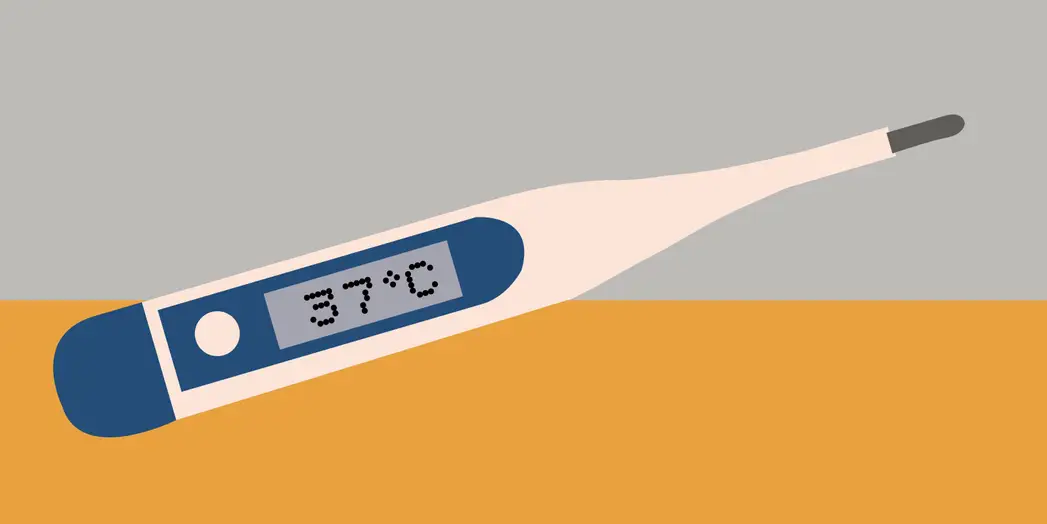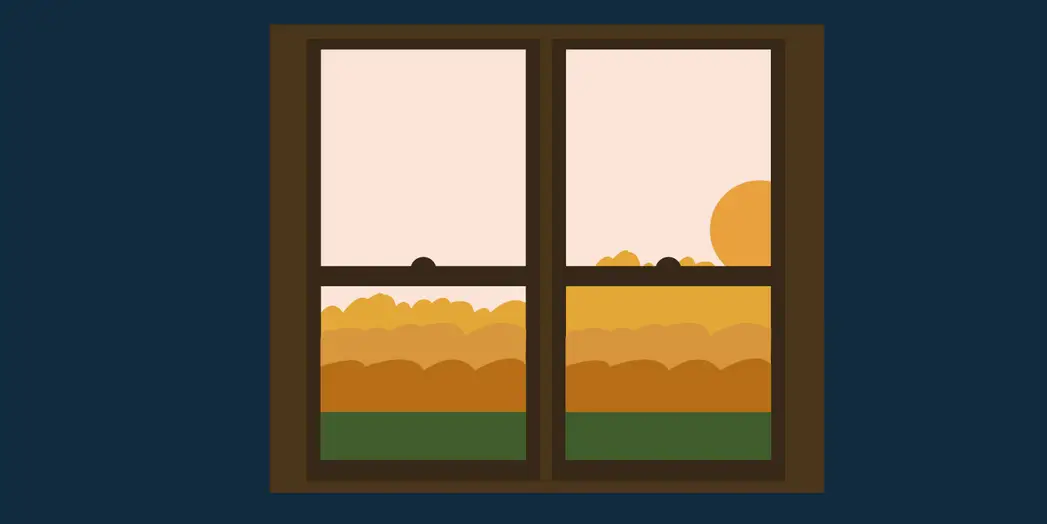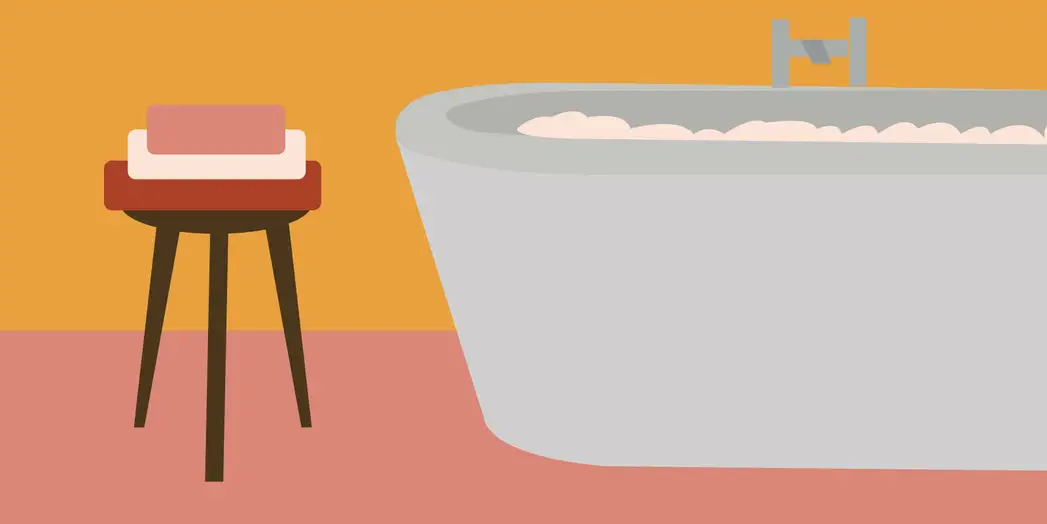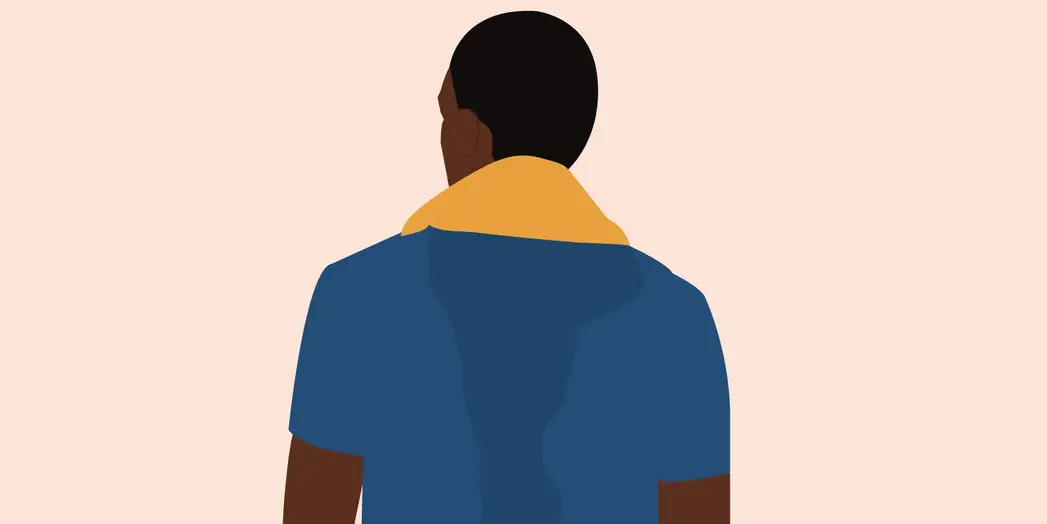Key points
Temperature has a big influence on your sleep, but it’s maybe not something that springs to mind when you’re thinking about improving your sleep. We’re going to explore what links sleep and temperature, including:
- how your body temperature changes during sleep
- the ideal bedroom temperature for sleep
- things that can affect your body temperature and interfere with sleep
- how to use temperature to create the best conditions for a good night’s sleep.
Temperature affects how you sleep
If you’ve ever battled through a night of difficult sleep during the heat of summer, woken with freezing cold feet on a winter’s night or found it hard to sleep after a particularly late evening meal, then you’ve experienced first-hand how temperature affects your sleep.
Both the temperature of your sleep environment and your body temperature will impact how well you sleep. Yet we often don’t associate how well we’re sleeping with how hot or cold we are in bed.
In this article, we’re going to bring together everything you need to know about how temperature influences your sleep and what you can do to create the best sleep environment for you.
We’ll explain how your body temperature is key to sleep and how many things can alter your temperature and impact your sleep. We’ll also give you lots of advice on how to influence your body temperature to improve your sleep.
By learning more about how these changes affect our sleep ― and what effect our sleep has on them ― we can adapt our environment and routines. This can lead to a more efficient, deeper and comfortable sleep and result in many health benefits.
We’ll begin with a look at what happens to your body temperature over the course of a day and night and how this is linked to your sleep.
Did you know that body temperature and insomnia are linked?
Your body temperature rises and falls in a natural rhythm each day but if you have insomnia, these highs and lows may not align with your chosen bedtime and this can affect your sleep. Our sleep improvement programme helps you to reset your natural sleep rhythms, allowing you to sleep well night after night.
Body temperature changes throughout the day
A normal body temperature is around 37°C (98.6°F) but it will differ slightly between each of us depending on age, physical activity levels, food intake and the time of day. Your temperature varies by up to 1.0°C (1.8°F) over the course of the day.1
Your core body temperature follows a circadian rhythm, which means that it rises and falls across a 24-hour cycle. At the start of the day, body temperature is low and rises steadily throughout the day. As evening draws in, it begins to drop again.
A drop in core body temperature is thought to be a signal for our bodies to prepare for sleep ― this is something that’s common across all mammals, from mice to humans.1 2
In the run up to sleep, your body’s temperature starts to fall and this is linked to a reduction in the time it takes to fall asleep.3 Over the course of the night, your body temperature will continue to drop until it’s at its lowest in the early hours, around 2-4am.
It’s been shown that increases in core temperature during sleep promote waking.4 About two hours before you wake, your core body temperature begins to rise and it continues to rise throughout the day, peaking in the early evening.
People living with insomnia have been shown to have a core body temperature rise and fall that is out of sync with the normal rhythms.5 Their core body temperature doesn’t fall in line with their chosen bedtime, making it difficult to fall asleep.
For core temperature changes to happen, your body needs to be able to hold onto or lose heat effectively.
You do this through your skin, which has a network of blood vessels running under it. Blood vessels open up (a process called vasodilation) or narrow down (a process called vasoconstriction) depending on whether core body temperature needs to decrease or increase.
If your core body temperature needs to decrease, heat can be lost through the distal skin (the skin furthest away from the core including the arms, hands, legs and feet).5 In this way, the skin acts as a ‘radiator’ giving out heat and effectively cooling the body.
So when your body needs to lose heat, blood vessels will dilate across the body, most noticeably in your hands and feet, and heat will be lost. Your hands and feet will feel warm as they give out this heat.
Your body is very effective at creating its own heat so, if your temperature needs to rise, the blood vessels across the body will narrow down to minimise how much heat is being lost through the skin.
This system works hard 24/7 and is constantly adapting to keep your core body temperature around the 37°C mark.

Body temperature and melatonin
We know that the loss of heat through your hands and feet (distal skin) is involved in making you fall asleep quickly and that this heat loss is associated with an increase in the key sleep promoting hormone, melatonin.4
Melatonin is important in many processes in the body and it’s considered to be the main signal that sets off a cascade of other signals in the body to prepare us for sleep. The production of melatonin itself is highly controlled by exposure to sunlight.
The first light that enters your eyes in the morning is the signal to shut down production in the body. Levels stay low for most of the day and then start to increase as light levels fall in the late afternoon and evening.
There’re several links between melatonin and temperature regulation in the body6 and we know that increasing melatonin can decrease core body temperature and increase peripheral temperature.7
As melatonin levels rise in the evening, so too does heat loss from the hands and feet. At a more complex level, melatonin is involved in cell signalling that results in blood vessels opening up to release heat.
Why is this important? As we said earlier, melatonin is regulated by exposure to sunlight. Getting adequate exposure to sunlight each day is crucial for keeping your melatonin production in sync with your sleep/wake cycles.
Given that melatonin and temperature are linked, taking care of one can benefit the other. So getting outside in natural light every day, especially the morning, can help to keep your melatonin in check, which can influence temperature regulation.

Your body temperature can affect your sleep quality
We’ve already said that changes in body temperature help you to fall asleep, but they also influence how well you sleep. A higher core body temperature in bed can affect how much deep sleep you get.
Your sleep is made up of two types of sleep: rapid eye movement (REM) sleep and non rapid eye movement (NREM) sleep. We cycle through NREM and REM several times throughout the night.
When you fall asleep, you enter the first stage of NREM sleep, called stage 1. This is very light sleep. You then pass into stage 2 sleep, which is deeper than stage 1 but still quite light sleep. After this you enter stage 3 sleep, the final and deepest stage of NREM sleep.
After stage 3 comes REM sleep, which is also deep sleep. At this point you might be wondering why we’re giving you a whistle-stop tour of the sleep stages. It turns out that temperature changes can affect these sleep stages and how well you sleep as a result.
Interestingly, slight changes occur in your body temperature as you cycle between REM and non-REM (NREM) sleep.12 The body cools as you enter NREM and heats up slightly when you enter REM.
We know that higher body temperatures during sleep are linked to a lower amount of deep sleep, both NREM stage 3 and REM sleep,4 and this can have a noticeable effect on how you feel when you wake up.
Deep sleep is important for recovery and repair of your muscles and tissues.8 If you’ve ever gone to bed aching after a particularly strenuous day, it’s deep sleep that helps you to feel physically recovered the next morning.
Deep sleep’s also when your brain processes everything you’ve experienced during the day and converts it into memories.9 What this means is that if you’re getting too hot at night, chances are your deep sleep is taking a hit.
You may be waking feeling unrefreshed or with a foggy head, but you might not necessarily be linking this to having been too warm in bed.
So we’ve covered how your body temperature influences your sleep but we also have to consider how your environment temperature can affect your sleep.
What’s the optimum room temperature for sleep?
For sleep, the ideal bedroom temperature is somewhere in the range of 15.5-21°C (60-70°F).210 A good average often quoted in the literature is to aim for a bedroom temperature around 18.3°C.
If your room is too hot or too cold, it can have a negative effect on your sleep. We’ll all have a slightly different temperature preference so you may have to play around to find the temperature that works best for you.
You also need to consider that your bedding will impact how hot or cold you are at night. While the temperature in your room should be on the cooler side, the temperature in the covers should be on the warmer side.
This creates a temperature gradient in which your body stays warm under the covers but the cooler temperature of your bedroom allows for efficient loss of heat from your head and any exposed hand and feet.
The temperature under your bedclothes needs to be roughly between 27 and 31°C (80.6-89.6°F) to ensure good sleep.11
When the temperature in bed drops to below 26°C you may find you wake up during the night. Temperatures above around 32°C can also disrupt your sleep, especially interfering with how much deep sleep you get.11
The humidity of the air is also important. High humidity values, particularly in hot climates, can reduce how much deep sleep you get and can increase wakefulness.12
It’s also worth noting that your temperature preference is also affected by factors such as the time of year and your sex. We can tolerate higher sleep temperatures during summer than winter and women prefer a slightly higher bed temperature than men.13
It can be useful to experiment with different pre-sleep activities, bedding and clothing materials, as well as room humidity values, to determine what works for you.
As we’re all different, your ideal sleep temperature will be individual to you. If you find yourself waking in the night, take a moment to consider if you’re feeling too hot or cold. There’re plenty of ways to improve your sleeping temperature, so let’s look at these now.
How to achieve the perfect sleeping temperature
We mentioned earlier that to fall asleep your core body temperature needs to drop slightly. You can actually use this fact to help yourself to fall asleep easier at night.
But how?!
The answer might surprise you. It’s not by exposing yourself to cold, but to warm up your skin up before getting into bed. Warming the peripheral skin causes the blood vessels to dilate so more heat escapes through their walls and we lose body heat faster.
So when you go to bed, you’re already in the process of cooling down. You can help accomplish this by:
- taking a warm bath, shower, or just a foot bath
- exercising a few hours before bed.
Let’s explore these in a little more detail.
The warm bath effect
Taking a warm bath before bed is a scientifically proven way of helping you get to sleep. In fact, it’s actually referred to in scientific literature as the ‘warm bath effect’ and there’s a tonne of data to support it.
Spending as little as ten minutes in a warm bath in the hour or two before you go to sleep has been shown to reduce how long it takes you to fall asleep, increase how long you sleep for initially and also increase how much deep sleep you get.2
We probably all know that feeling of climbing into bed and getting cosy under the duvet. This heats up the space between you and the duvet and your blood vessels dilate, allowing your body to lose heat.
This is exactly what’s going on when you take a bath before bed too. You’re just getting the process started before you get into bed, so by the time you go to sleep your heat loss is well under way.

Exercising before bed
Studies have shown that exercising up to two hours before bed can reduce how long it takes you to fall asleep and can increase the amount of deep sleep you get.14 15
When you exercise, your body temperature increases and then once you’ve finished, you naturally cool down. This effect is similar to what happens after a warm bath. Exercise also increases your sleep drive, helping to make you feel more tired at bedtime.
Exercise can also help you to destress and reduces anxiety,14 making falling asleep easier at night. So there’re multiple benefits to engaging in some exercise in the hours before bed.
It’s best to avoid exercising too close to bedtime though, as you don’t want to go to bed when you’re still hot from exercising, as this will make it harder to fall asleep. The intensity of your exercise can also affect how well you sleep.
A recent analysis of 15 studies of high intensity exercise before sleep found that as long as the exercise wasn’t less than two hours before sleep, there were no negative effects to sleep.
Anything less than two hours and not only do you run the risk of having aching muscles, you may experience a reduction in the amount of restorative REM deep sleep.14

Choose your bedding wisely
Your bedding’s going to play a big role in how hot or cold you feel in bed, so it’s worth getting the balance just right. If you find you’re waking up with the covers thrown to one side, maybe you need to consider a thinner duvet. If you’re cold, try switching to a higher tog rating.
A good option is to go for layers of bedding. That way, if you get hot in the night, you can remove one layer and see if that helps you sleep better. Natural fibres like cotton and linen offer good breathability and can wick away moisture if you get hot during the night.
Cotton sheets also come in different forms, such as:
- flannel, a brushed cotton, which is good for retaining heat during the colder months
- percale, which is lightweight and a good choice for summer sheets
- jersey, which has a texture like t-shirts and is good for temperature control.
You can match the type of sheets on your bed to the season you’re in and your personal preferences.
But what do you do if you sleep with a partner who has different bedding requirements to you? With layered bedding, each partner can choose their preferred level of cover but if this doesn’t work for you, a simple solution could be to invest in two single duvets/covers of different thicknesses.
If you don’t like the idea of two duvets, you can even buy ‘partner duvets’ that have one thicker half and one half that’s thinner or keep a variety of covers in your room. That way, if one partner feels cold, they can easily add a layer to their side of the bed.
What can affect your body temperature?
What you eat and drink and how close to bedtime you choose to indulge can have an effect on your body temperature and impact your sleep too. Eating a large or fatty meal too close to bedtime is one such factor that can reduce how well you sleep.
After you eat, your body gets to work digesting your food. Your metabolic rate increases, which means your body is burning off more calories, causing your body temperature to rise slightly. Think of it like stoking a furnace ― you put the fuel in, it fires up and heat is given out.
So if you’re fuelling up too close to bedtime, or even if you’re eating a couple of hours before bed but the meal was particularly large, high in fat or protein, then your body temperature will be slightly higher than normal.
As we know, body temperature needs to reduce to bring about sleep, so this increased temperature from eating will not help you to sleep. This can also happen when you drink alcohol or caffeine in the evening as they can both increase your body temperature.
By being aware of the factors that can negatively affect your body temperature and those that can help you lose heat in the run up to bedtime, you can take steps to optimise your body temperature before you go to bed.

If you need help with your sleep, we can help
If you’re having trouble sleeping and you think temperature may be involved, we hope that the information in this article has given you some starting points to get your sleep back on track.
As we mentioned earlier, insomnia can be linked to your body temperature being out of sync with sleep times, so the tips in this article can help you get your body temperature back into a regular rhythm and help you sleep.
If you’ve tried the approaches we’ve discussed above and you’re still not getting the sleep you need, we can help. Start by telling us a little bit about your sleep problem, it only takes a couple of minutes, and we can show you how to take back control of your sleep.
Summary
Temperature plays a huge role in your sleep, influencing everything from how quickly it takes you to drop off at night to how much deep sleep you get. Understanding how body temperature and environment temperature can affect your sleep can help you create good sleep habits.
- Your body temperature naturally reduces in the run up to sleep and this helps you to fall asleep at night.
- Taking a bath or shower in the hours before bed can help your body temperature decrease in preparation for sleep.
- Your bedroom temperature should be around 18.3°C for good sleep, but the specific temperature that works for you may be slightly lower or higher than this.
- If you’re waking in the night too hot or too cold, then this will impact on your overall sleep, so it’s worth modifying your bedding to create the right sleeping temperature for you.
- Sleep disorders such as insomnia can be associated with problems regulating temperature, so the tips in this article may help you to improve your symptoms.
- If you’ve followed the advice in this article but still aren’t getting the sleep you need, our sleep improvement programme can help you take back control of your sleep.
References
- Harding EC, Franks NP, Wisden W. Sleep and thermoregulation. Curr Opin Physiol 2020; 15: 7–13. ↩︎
- Harding EC, Franks NP, Wisden W. The temperature dependence of sleep. Front Neurosci 2019; 13. ↩︎
- Gilbert SS, van den Heuvel CJ, Ferguson SA, Dawson D. Thermoregulation as a sleep signalling system. Sleep Med Rev 2004; 8: 81–93. ↩︎
- Okamoto-Mizuno K, Mizuno K. Effects of thermal environment on sleep and circadian rhythm. J Physiol Anthropol 2012; 31: 14. ↩︎
- Muzet A, Libert JP, Candas V. Ambient temperature and human sleep. Experientia 1984; 40: 425–429. ↩︎
- Lok R, van Koningsveld MJ, Gordijn MCM, Beersma DGM, Hut RA. Daytime melatonin and light independently affect human alertness and body temperature. J Pineal Res 2019; 67: e12583. ↩︎
- Burgess HJ, Sletten T, Savic N, Gilbert SS, Dawson D. Effects of bright light and melatonin on sleep propensity, temperature, and cardiac activity at night. J Appl Physiol 2001; 91: 1214–1222. ↩︎
- Dattilo M, Antunes HKM, Medeiros A, Mônico Neto M, Souza HS, Tufik S et al. Sleep and muscle recovery: endocrinological and molecular basis for a new and promising hypothesis. Med Hypotheses 2011; 77: 220–222. ↩︎
- Klinzing JG, Niethard N, Born J. Mechanisms of systems memory consolidation during sleep. Nat Neurosci 2019; 22: 1598–1610. ↩︎
- Strøm-Tejsen P, Mathiasen S, Bach M, and Petersen S. The effects of increased bedroom air temperature on sleep and next-day mental performance. July 2016 Conference: The 14th International Conference of Indoor Air Quality and Climate. At: Ghent, Belgium Volume: Paper 640. ↩︎
- 9 Joshi SS, Lesser TJ, Olsen JW, O’Hara BF. The importance of temperature and thermoregulation for optimal human sleep. Energy Build 2016; 131: 153–157. ↩︎
- Lan L, Lian Z. Ten questions concerning thermal environment and sleep quality. Build Environ 2016; 99: 252–259. ↩︎
- Liu Y, Song C, Wang Y, Wang D, Liu J. Experimental study and evaluation of the thermal environment for sleeping. Build Environ 2014; 82: 546–555. ↩︎
- Frimpong E, Mograss M, Zvionow T, Dang-Vu TT. The effects of evening high-intensity exercise on sleep in healthy adults: A systematic review and meta-analysis. Sleep Med Rev 2021; 60: 101535. ↩︎
- Stutz J, Eiholzer R, Spengler CM. Effects of evening exercise on sleep in healthy participants: A systematic review and meta-analysis. Sports Med 2019; 49: 269–287.
↩︎


